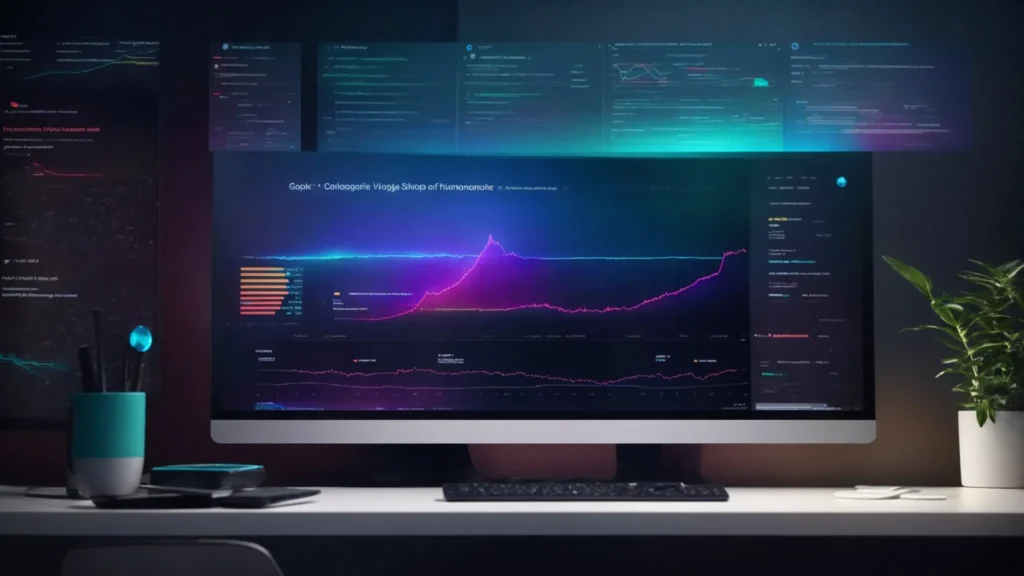The Future of Search: Exploring Google’s Top SEO Ranking Factors in 2025
The landscape of search engine optimization (SEO) is an ever-evolving field, where today’s effective strategies may become obsolete tomorrow. As we look towards the future, it is essential to stay informed about the shifts and trends that shape Google’s search algorithm, as they significantly impact the visibility and success of content on the internet. Staying ahead of the curve in implementing SEO best practices ensures that websites not only maintain their rankings but also capitalize on emerging opportunities. Below, we delve deep into anticipated trends and directives that are likely to underpin SEO ranking factors in 2025.
The Evolution of Search Algorithms and Their Impact on SEO Strategies
In the digital age, the evolution of search engine algorithms continues to redefine the parameters of SEO success. As 2025 approaches, Google is expected to make significant leaps in personalization and contextual understanding, pushing websites to tailor their content more precisely to user intent. This evolution will necessitate an adaptable approach to SEO, where strategies are continuously refined in response to algorithmic updates.
One notable shift in recent years has been the growing emphasis on semantic search capabilities. As search engines become more sophisticated at deciphering user intent, the relevance and contextual alignment of content will supersede the optimization of keyword density. This trend is compelling content creators to engage in more natural language processing and less in rigid keyword targeting.
Overall, the progression of algorithms is likely to continue towards a more user-centric model, rewarding content that offers genuine value and penalizing manipulative SEO tactics. This progression highlights the importance of quality over quantity, indicating a future where ethical and user-centric SEO practices will prevail.
Understanding the Role of Artificial Intelligence in Future Search Rankings
Artificial Intelligence (AI) is becoming essential in modern SEO strategies, with its influence expected to grow by 2025. AI can analyze large data sets and predict user behavior, affecting search result rankings. Traditional tactics like keyword stuffing and link farming are losing effectiveness, as AI-driven algorithms prioritize engaging, conversational content.
AI also enhances user personalization, leading to highly tailored search experiences. By 2025, search engines may provide individually curated results, prompting SEO experts to adapt their optimization techniques. Additionally, AI will play a crucial role in identifying and penalizing black-hat SEO tactics, promoting a more transparent and fair ranking system.
The Importance of User Experience Signals in SEO Performance
The influence of user experience (UX) signals on SEO is expected to increase significantly by 2025. Search engines are prioritizing how users interact with websites, focusing on factors such as page load speed, ease of navigation, and mobile responsiveness. This shift emphasizes the importance of meeting user needs for a seamless browsing experience.
Metrics such as dwell time, bounce rates, and click-through rates are becoming vital indicators of content quality and relevance. As a result, content creators should design web pages that are both accessible and engaging, while also being informative.
With the merging of SEO and UX design, collaboration between SEO experts and UX designers will be crucial. By prioritizing UX signals, websites can improve their organic reach while providing valuable user experiences. Integrating interactive features and multimedia content is essential for keeping users engaged, which can lead to better search rankings. Web admins must focus on creating comprehensive, user-friendly environments to succeed in this evolving landscape.
Mobile-First Indexing and the Imperative of Responsive Web Design
The shift towards mobile-first indexing highlights the importance of mobile compatibility for SEO. By 2025, optimizing for mobile will be crucial, as mobile devices are expected to dominate internet access. Websites lacking responsive design risk lower search rankings.
Responsive web design ensures that content is accessible and consistent across desktops, tablets, and smartphones, thereby enhancing user engagement and meeting Google’s mobile-friendly guidelines, which are crucial for indexing and ranking.
With the rise of 5G technology, user expectations for fast loading times will increase. Sites that load quickly are likely to achieve higher rankings and lower bounce rates, reinforcing the link between mobile optimization and SEO.
Google’s focus on improving mobile user experience drives upcoming algorithm updates, including Accelerated Mobile Pages (AMP) and mobile-first indexing. Thus, responsive web design is vital not only for SEO but for business success.
As we look to the horizon of 2025, the tapestry of SEO is complex and dynamic, responsive to technological advancements and evolving user behaviors. The core focus, however, remains clear: fostering a high-quality, user-centric web experience that aligns with the sophisticated algorithms of future search engines. By embracing these trends today, we prepare for a tomorrow where SEO strategies continue to be the linchpins of digital presence and success.

